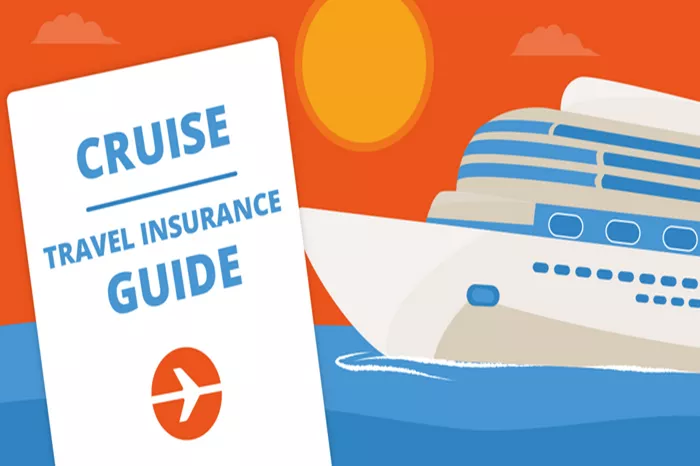When planning a holiday, travel insurance is a vital component of the preparations. However, what happens if your trip is unexpectedly extended? Many travelers wonder whether they can extend their holiday insurance and what this process entails. This article will explore the ins and outs of extending holiday insurance, including why it might be necessary, how to do it, the potential costs, and the conditions under which it can be extended.
Understanding Holiday Insurance
What Is Holiday Insurance?
Holiday insurance, also known as travel insurance, is a policy designed to cover unforeseen events that might occur during a trip. These can include medical emergencies, trip cancellations, lost luggage, and other unexpected issues. Travel insurance provides peace of mind by covering expenses that could otherwise cause significant financial strain.
Why Is Holiday Insurance Important?
Holiday insurance is crucial because it protects travelers from a wide range of potential problems. Without insurance, you could be responsible for covering the costs of medical treatment, flight cancellations, lost baggage, or even the need to return home unexpectedly. These expenses can add up quickly, making travel insurance an essential safety net.
Reasons for Extending Holiday Insurance
Extended Stay Due to Unforeseen Circumstances
One of the most common reasons travelers seek to extend their holiday insurance is an unexpected extension of their trip. This can happen for several reasons, including:
Flight Delays or Cancellations: Inclement weather, technical issues, or airline strikes can cause delays or cancellations, leading to an extended stay.
Medical Emergencies: If you or a traveling companion falls ill or is injured during the trip, you may need to stay longer than initially planned for recovery.
Political Unrest or Natural Disasters: Situations such as political unrest or natural disasters may make it unsafe or impossible to return home as scheduled.
Personal Reasons: Family emergencies, such as the illness or death of a loved one, might require you to extend your stay.
Extended Travel Plans
Sometimes, travelers simply decide to extend their vacation. Perhaps you’re enjoying your destination so much that you want to stay longer, or you’ve found an opportunity for additional exploration. In these cases, extending your travel insurance ensures you remain covered for the duration of your extended trip.
How to Extend Holiday Insurance
Contacting Your Insurance Provider
The first step in extending your holiday insurance is to contact your insurance provider. Most insurers offer the option to extend coverage, but it’s crucial to do so before your existing policy expires. If your policy has already lapsed, you may face difficulties in securing an extension.
Reviewing Your Current Policy
Before requesting an extension, review the terms and conditions of your current policy. Some insurance plans may automatically extend coverage under certain circumstances, such as flight delays. Understanding what your policy already covers will help you determine whether an extension is necessary.
Providing Necessary Documentation
When requesting an extension, you may need to provide documentation to support your request. This could include:
Flight Tickets: If your return flight has been delayed or canceled, your insurer may request proof of this.
Medical Reports: If a medical emergency has extended your stay, you may need to provide medical documentation.
Travel Itinerary: For voluntary extensions, a revised travel itinerary may be required to show your new return date.
Paying Additional Premiums
Extending your holiday insurance will likely involve paying an additional premium. The cost of this extension will depend on several factors, including the length of the extension, the level of coverage, and any additional risks associated with your extended stay.
See Also: When Should I Buy Holiday Insurance?
Conditions for Extending Holiday Insurance
Timing of the Extension Request
One of the most critical factors in extending your holiday insurance is timing. Insurers typically require that extension requests be made before the original policy expires. If you wait until after your policy has lapsed, the insurer may deny your request, leaving you without coverage.
Medical Considerations
If you need to extend your insurance due to a medical emergency, the insurer may impose specific conditions. For example, they might require that the illness or injury occurred during the period of the original policy. Pre-existing conditions may not be covered under an extension, depending on the terms of your policy.
Changes in Coverage
When extending your holiday insurance, be aware that the terms and conditions of your coverage may change. For example:
Increased Premiums: Extending your coverage may result in higher premiums, especially if you’re staying in a high-risk area.
Exclusions: The insurer may add exclusions to your extended policy, such as not covering certain activities or pre-existing conditions.
Coverage Limits: The coverage limits of your policy may also change, so it’s essential to understand what is and isn’t covered under the extension.
Cost Implications of Extending Holiday Insurance
Factors Influencing the Cost
Several factors can influence the cost of extending your holiday insurance. These include:
Length of Extension: The longer the extension, the higher the additional premium will likely be.
Destination: If your extended stay is in a high-risk area (e.g., a country with political unrest or a high crime rate), the cost of extending your insurance may increase.
Age of the Traveler: Older travelers may face higher premiums for extended coverage due to the increased risk of medical issues.
Health Status: If you’ve experienced a medical emergency during your trip, extending your insurance may be more expensive, especially if the extension needs to cover ongoing treatment.
Comparing Costs with a New Policy
In some cases, it may be more cost-effective to purchase a new travel insurance policy rather than extend your existing one. This is particularly true if your original policy has lapsed or if the cost of extending is prohibitively high. Comparing the costs and coverage of an extension versus a new policy can help you make an informed decision.
Conclusion
Extending holiday insurance is not only possible but often necessary in various situations, such as flight delays, medical emergencies, or a voluntary extension of your trip. By understanding the process, costs, and conditions associated with extending your coverage, you can ensure that you remain protected throughout your travels. Always remember to contact your insurer as soon as you know your trip will be extended, and be prepared to provide the necessary documentation. Whether you choose to extend your existing policy or purchase a new one, having the right coverage will give you peace of mind during your extended holiday.






















